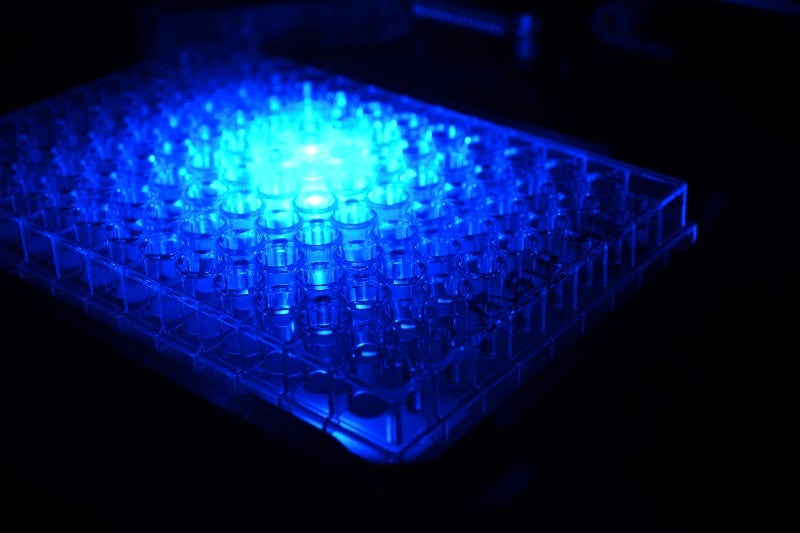Characterization of the HCMV-Specific CD4 T Cell Responses that Are Associated with Protective Immunity
Read CTL's latest whitepaper about HCMV

Cellular Technology Limited (CTL) is a global biotechnology company specialized in the development, use, and manufacture of standardized tools for cellular immune assays.
You have successfully submitted your enquiry. Someone from our company will respond ASAP

Cellular Technology Limited (CTL) is a global biotechnology company specialized in the development, use, and manufacture of standardized tools for cellular immune assays.
The company manufactures ImmunoSpotTM analyzers and provides consumables for testing, such as its cryopreserved ePBMC. CTL’s laboratory services include but is not limited to cryopreservation of samples, assay development and validation, regulatory complaint testing, and plate scanning and analysis.
CTL is a leading solution provider for immune monitoring needs during drug and vaccine development, supporting both pre-clinical and clinical studies. Its contract laboratory operation has a unique high-throughput immune monitoring capability of cell-mediated immunity (CMI) with emphasis on T and B-cells in a GCP and GLP-compliant facility.
The company’s laboratory services include but are not limited to, separation of PBMC from whole blood and cryopreservation of functional PBMC, assay development and validation, for ELISPOT, killer assays, ELISA, and FACS. Furthermore, CTL manufactures ImmunoSpotTM analyzers for the evaluation of immunological and bioassays (ELISPOT, viral plaque, serum neutralization and cytopathic effect). CTL’s extensive library of cryopreserved characterized PBMC, and a targeted range of consumables complete its solution portfolio.
To help researchers get the best possible results from their assays, the company offers a wide range of products and services, including:
A significant quest in the field of immune monitoring is the reliable enumeration of antigen-specific T and B-cells to assess the magnitude of immunity and define the class of the immune response by measuring the lymphocytes’ secretory products. Cancer immunotherapy proficiency panels compared to what extent ELISPOT, tetramer staining and intracellular cytokine staining (ICS) would be suited to meet this goal.
CTL offers everything needed for maximized, standardized ELISPOT work:
The company’s extensive library of cryopreserved peripheral blood mononuclear cells, ePBMC®, offers instant access to characterized, standardized, and quality-controlled PBMC in virtually unlimited quantities. These cells, frozen to retain full functionality, can be used as reagents, with no IRBs needed.
Each of the over 500 donors in the ePBMC® library is high-resolution, HLA-typed, and characterized for immune reactivity to dozens of antigens. This library of PBMC makes it possible to select donors with the desired geno or phenotypes and to test large collectives.
An unlimited number of experiments can be run with the same cells, permitting the standardization of the largest variable in cellular assays, the cell material itself.
At CTL, the company believes that progress in human research will benefit from the ease of repeated access to high-quality, characterized PBMC.
CTL has been providing contract laboratory services for government laboratories, major pharmaceutical companies, biotechnology companies, and academic institutions for nearly 20 years. The company has been recognized by the Cancer Vaccine Consortium as its ELISPOT reference laboratory and has been awarded a contract by the US National Institutes of Health (NIH) to validate the ELISPOT assay for pre-clinical and clinical trials. CTL is a member of the Society of Quality Assurance (SQA) and the Regulatory Affairs Professionals Society (RAPS). CTL’s lab has been certified for Cell Viability by the International Society for Biological and Environmental Repositories (ISBER).
Thanks to the company’s in-house expertise and rigorous procedures, CTL conducts all assays in its regulatory compliant laboratory, whether to validate the test methods to satisfy FDA requirements or evaluate specimens for scientific significance. The company also provides high-throughput data acquisition, evaluation, and quality control, allowing us to process large assays within a relatively short amount of time. For new clients, the company can schedule an initial telephone conference to discuss how the company’s products and services can assist you in achieving your goals.
Until now, the freezing and testing of PBMC samples has required the use of serum. Unfortunately, serum contains a plethora of bioactive molecules whose variable concentrations makes every serum batch unique. The need to work with serum has thus been a significant obstacle to reproducible and standardized ex vivo experimentation with primary cells, such as PBMC.
CTL’s media portfolio permits every single step of ex vivo PBMC work to be performed under serum-free conditions: loss-free freezing, thawing, and testing. You can avoid unspecific high background reactivity while supporting specific cellular functions. CTL’s serum-free media offers all these advantages at a cost comparable to serum-containing media.
The evaluation of many bioassays requires accurate recognition of complex optical patterns in test wells. While the expert’s eye is remarkable in judging morphologies, visual evaluation is tedious, does not leave transparent audit trails, and is error-prone. CTL has created a reader platform, Biospot®, that evaluates these assays with the accuracy of an expert’s eye, minus the shortcomings. The Biospot® platform is suitable for:

Read CTL's latest whitepaper about HCMV

Plasma-derived (pd) or recombinant (r) therapeutic factor VIII proteins (FVIIIs) are infused to arrest/prevent bleeding in patients with hemophilia A (PWHA). However, FVIIIs are neutralized if anti-FVIII-antibodies (inhibitors) develop.

Detection of antigen-specific memory B cells for immune monitoring requires their activation, and is commonly accomplished through stimulation with the TLR7/8 agonist R848 and IL-2.